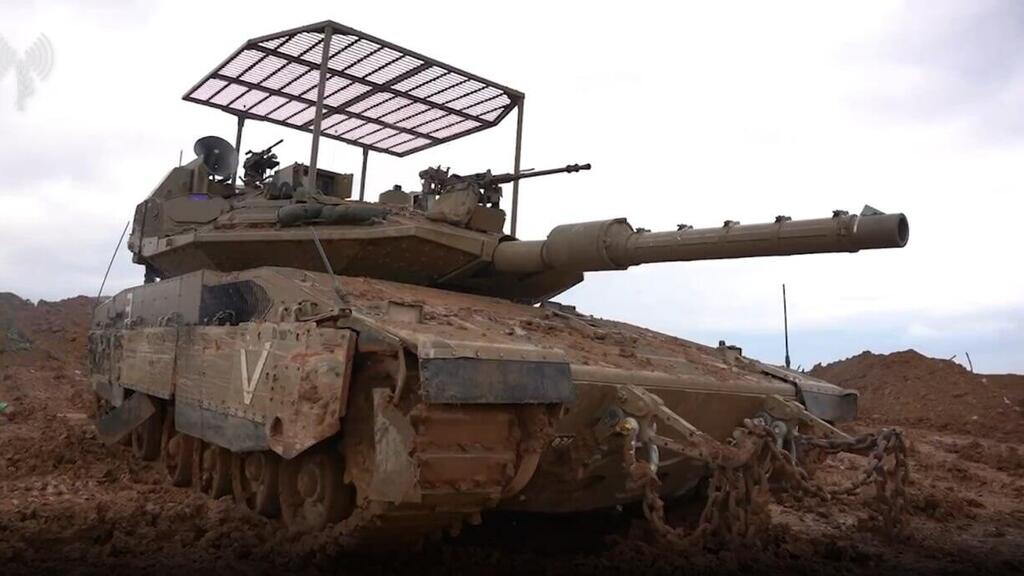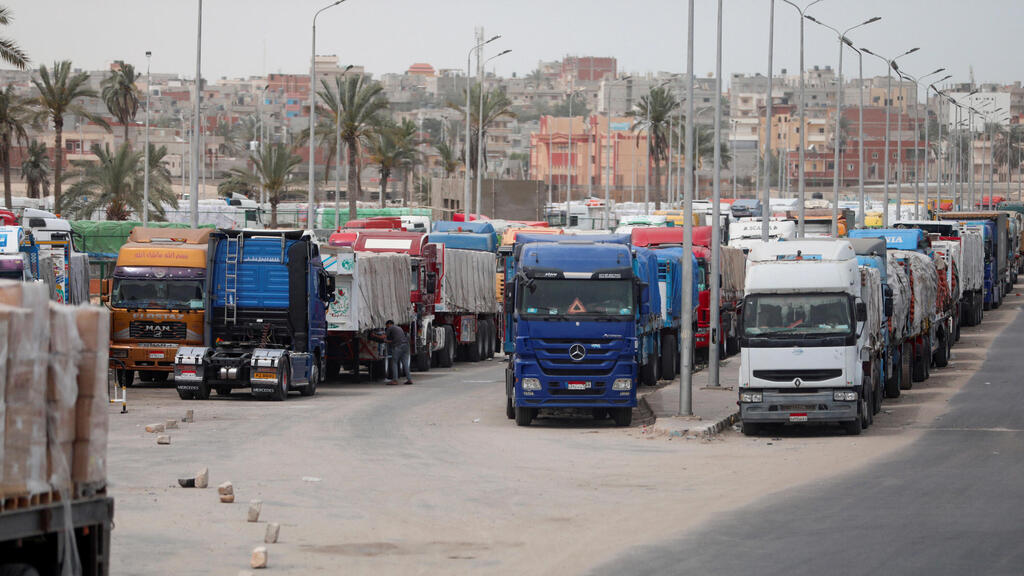Four days after the first phase of the hostage deal ended, negotiations for its continuation have reached a deadlock. Mediators informed Israel that Hamas is refusing to show flexibility or discuss the framework proposed by U.S. President Donald Trump’s envoy, Steve Witkoff. Instead, Hamas insists on proceeding with the second phase of the deal and accuses Israel of violating the agreement.
Despite Hamas’ refusal, Israeli officials remain hopeful that the terror group will soften its stance at the last moment, knowing that Israel is moving closer to resuming military operations. Jerusalem believes that as Hamas recognizes Israel’s full coordination with Washington and the strong backing of the U.S. president, it will opt for compromise.
3 View gallery


Netanyahu and Witkoff; Lighting bonfires at a demonstration for the return of the hostages in Tel Aviv
(Photo: Evelyn Hockstein/Pool/Reuters; Oliver Contreras/AFP)
While Israeli officials estimate that military operations may not resume immediately, they do not rule out the possibility of renewed fighting as early as next week. In the meantime, newly appointed IDF Chief of Staff Eyal Zamir begins his tenure Wednesday, and the political leadership aims to give him a few days to settle into his role.
Israel also does not expect a breakthrough before Witkoff visits the region. As of now, no date has been set for his trip, and it appears that, if he does come, it will not be before next week. A senior Israeli security official said Witkoff is in no rush to arrive due to the lack of progress in negotiations.
Over the weekend, Israel’s political leadership decided to halt humanitarian aid to Gaza in response to Hamas’ refusal to engage in further talks and the expiration of the cease-fire. Israel is now preparing to escalate pressure on Hamas, including cutting off water and electricity to the Strip. Under Witkoff’s proposal, half of the remaining hostages — both living and dead — would be released on the first day of the agreement. The second half would be freed at the deal’s conclusion, contingent on an agreement for a permanent cease-fire.
Foreign Minister: Hamas must commit to hostage release
Foreign Minister Gideon Saar declined to comment on whether Israel had set a deadline for Hamas to comply, after which military operations would immediately resume. "If we decide to act, we will," he said regarding a potential return to fighting. "We are ready to proceed with the second phase, but we demand a commitment to the release of the hostages."
Referring to the decision to halt humanitarian aid, Saar stated: "We cannot allow aid to be used to sustain Hamas’ war against Israel."
In a briefing with foreign media, he emphasized that Israel had fully implemented its commitments in the previous hostage deal. "Israel accepted U.S. envoy Steve Witkoff’s proposal to extend the agreement, but Hamas refused. That is why Israel has halted the transfer of humanitarian aid to Gaza. Any aid that reaches Hamas is not humanitarian — it has become the terror group’s main source of revenue. Hamas exploits it to fund terrorism, rebuild its capabilities, and recruit more terrorist operatives."
Proposed interim solution for Ramadan
A senior Israeli official revealed that Israel had proposed a temporary "bridging solution" in Cairo, which would include the release some hostages in exchange for a short-term arrangement during the current week. However, after Hamas rejected the proposal, Israel decided to shut down border crossings. The official dismissed the term "humanitarian aid," instead describing the halted shipments as "logistical supplies," despite Israel’s previous decisions — led by Prime Minister Benjamin Netanyahu — to allow food, electricity, and fuel into Gaza.
"I would like to see hostages released and allow the entry of goods suitable for Ramadan celebrations," the official said. "If Hamas releases hostages, we will certainly consider allowing in supplies needed for the holiday and for Iftar meals. But first, we must take care of our own people. We need to bring back both the living and the dead."
The temporary arrangement, according to the official, was meant to create a buffer period between the completion of the first phase and negotiations for the next step. Israel sees this next phase as discussions over Witkoff’s framework, rather than a continuation of the original second phase of the hostage deal. "We wanted a window of time between negotiating Witkoff’s plan and the first phase of the deal," the official explained. "We don’t view it as moving on to ‘Phase II,’ but rather transitioning to a new stage."
Get the Ynetnews app on your smartphone: Google Play: https://bit.ly/4eJ37pE | Apple App Store: https://bit.ly/3ZL7iNv
According to Israeli officials, Witkoff’s framework would require several weeks of negotiations to address key issues. In the meantime, Israel insists that hostage releases must take place as a condition for continuing talks. Officials argue that Hamas’ refusal to release hostages before further negotiations is what could ultimately derail the entire process.
"Israel’s policy is clear — there is no such thing as a cease-fire without the release of hostages," the official stressed. "For us, negotiations must take place either under fire or within an agreed framework. Hamas simply refused to continue talks in a mutually acceptable manner, which is why the government decided on Saturday night" to halt humanitarian aid transfers.





